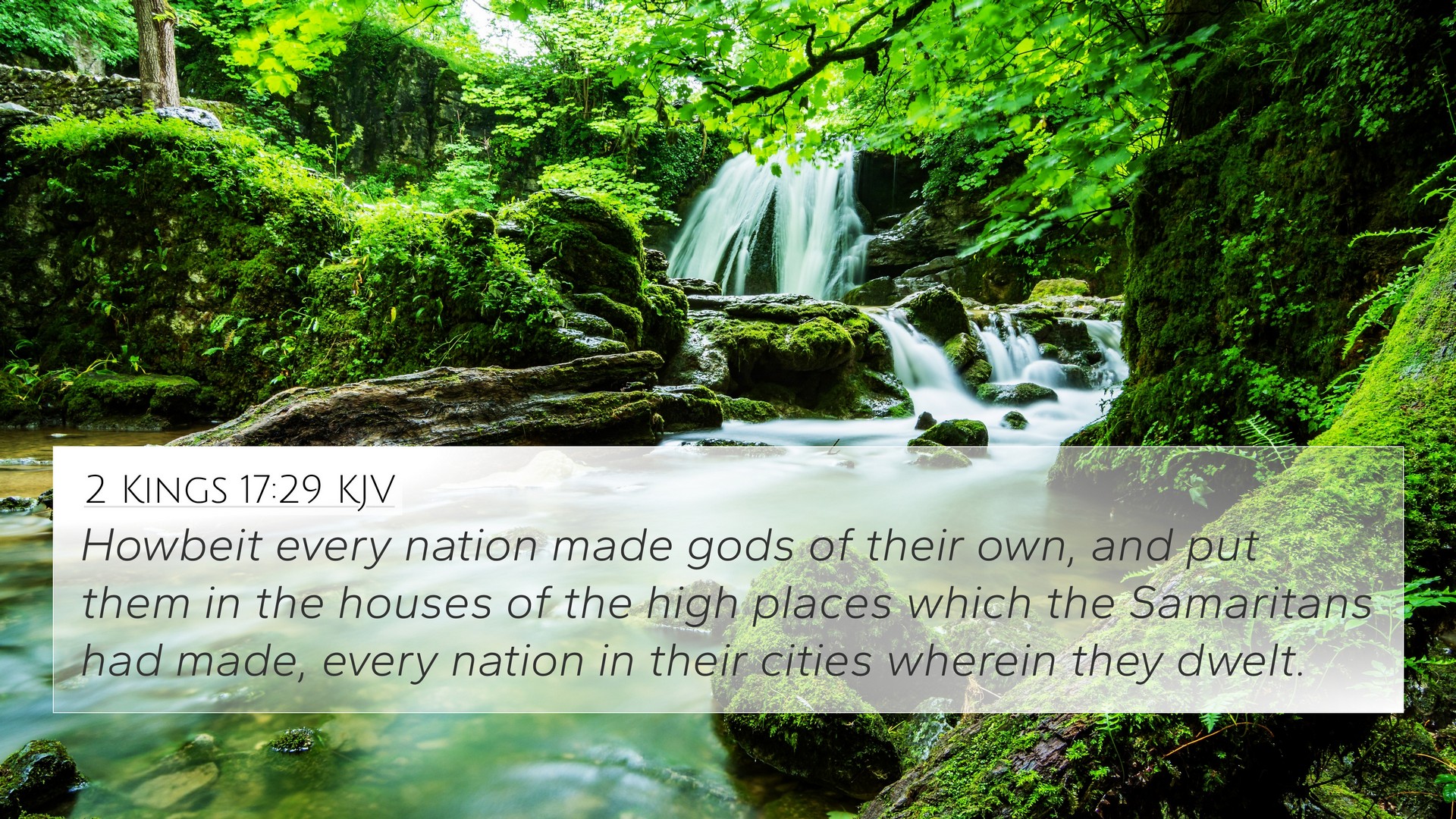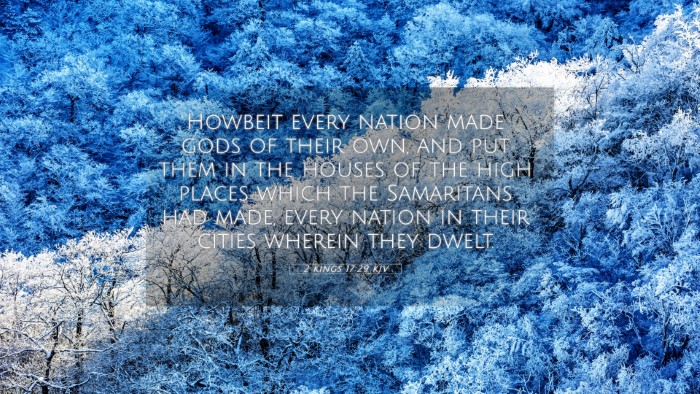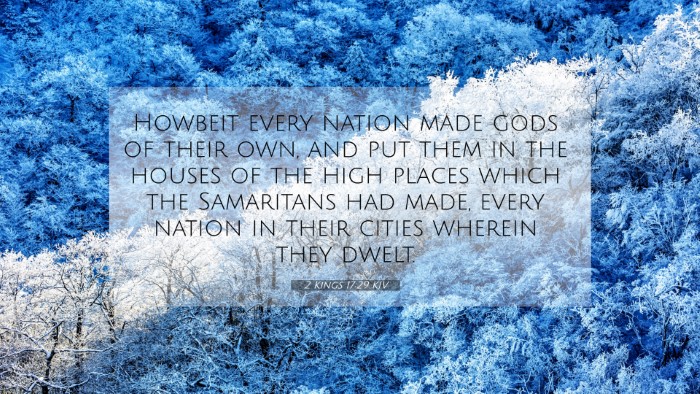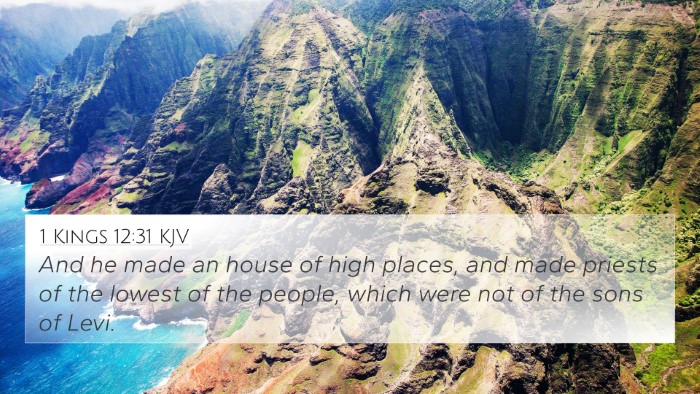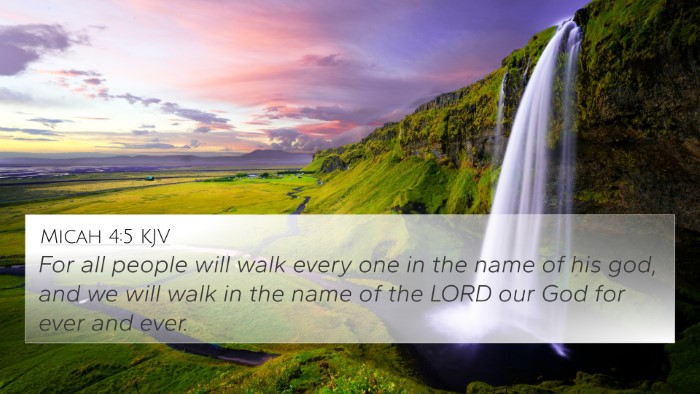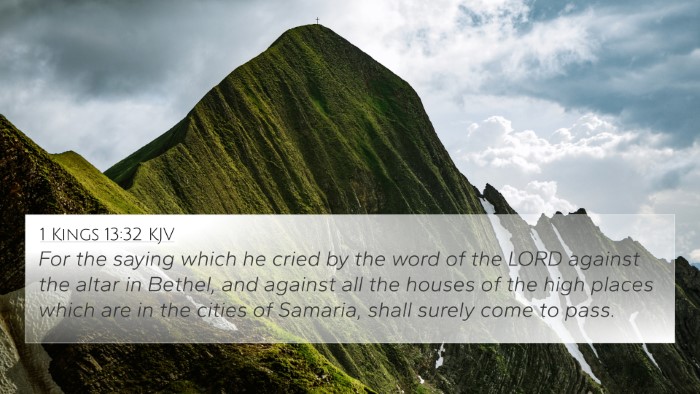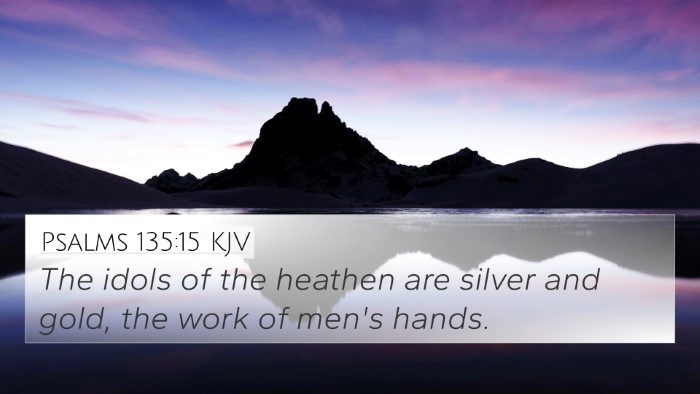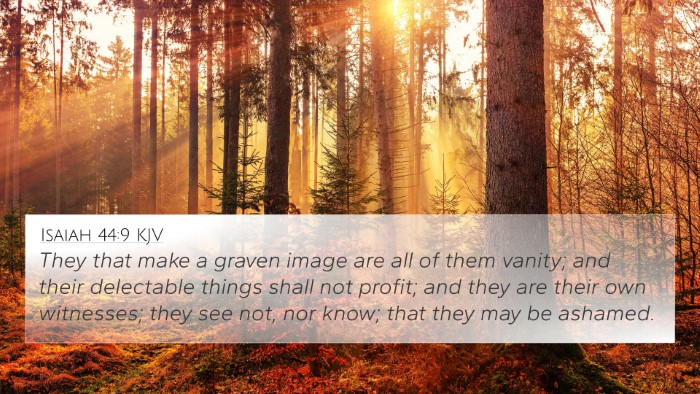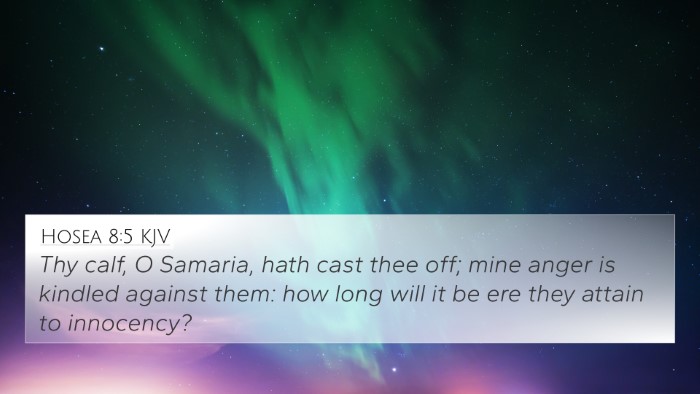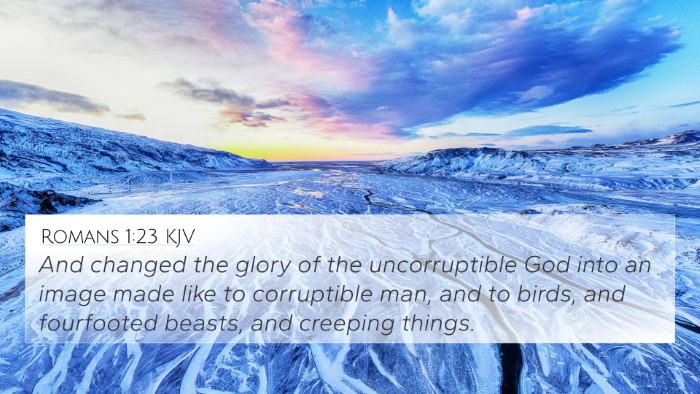2 Kings 17:29 - Interpretation and Meaning
2 Kings 17:29 states: "Howbeit every nation made gods of their own, and put them in the houses of the high places which the Samaritans had made, every nation in their cities wherein they dwelt."
Overview
This verse reflects a critical moment in biblical history where Israel's disobedience to God resulted in the mixing of pagan practices with their worship. As the Israelites were exiled, the populations that settled in their land adopted local religious customs, leading to a syncretism that diluted their acknowledgment of Yahweh.
Meaning of Key Aspects
- Idolatry: The term “gods of their own” signifies the tendency of people to create deities that are convenient to their desires and beliefs, abandoning the true God.
- High Places: The "high places" were often sites of idol worship, symbolizing a departure from authentic worship practices ordained by God.
- Nativity of Nations: The mention of different nations denotes how each group maintained its identity and traditions, even in a land that was not originally theirs, showcasing the broader implications of cultural and spiritual displacement.
Summarized Insights from Public Domain Commentaries
Matthew Henry's Commentary
Henry discusses the consequences of idolatry among nations who settled in Israel, emphasizing that they worshipped gods of their own making instead of adhering to the worship of Yahweh. He notes this was a significant turn from the worship prescribed in the Mosaic Law and served as a cautionary tale about the dangers of blending faiths.
Albert Barnes' Notes
Barnes emphasizes the manner in which the foreign nations assimilated with the local customs, participating in idolatry as they settled among the Israelites. He suggests that this melding of religions reflects a profound corruption of faith, leading to societal decay.
Adam Clarke's Commentary
Clarke elaborates on how the practice of creating their own gods highlights a fundamental rejection of true worship. He comments on the implications this had not only for Israel but also for the nations involved, who lost their spiritual bearings in zealous idol-worship.
Connections Between Bible Verses
This verse connects to numerous other scripture references that highlight the themes of idolatry and divine judgement:
- 1 Kings 12:28-30: Details Jeroboam's establishment of golden calves for worship.
- Psalm 106:34-39: Discusses the Israelites’ corruption and worship of foreign gods.
- Isaiah 45:20: Calls on people to acknowledge the futility of manufactured gods.
- 2 Chronicles 33:9: Accounts for Manasseh's leading of Judah into idolatry.
- Romans 1:21-25: Speaks on the exchange of truth for lies and worshiping the created rather than the Creator.
- Galatians 4:8: A warning against reverting back to pagan practices after knowing God.
- Revelation 21:8: Discusses the fate of idolaters and their ultimate judgment.
Thematic Connections and Inter-Biblical Dialogue
The act of creating gods is a recurring narrative throughout the Bible, connecting various testimonies against idolatry and demonstrating God's unwavering call to fidelity. Comparing these instances, we see a demonstrated pattern of God’s disapproval emerging in both the Old and New Testaments:
- Exodus 20:3: The First Commandment forbidding other gods precedes the issues faced in 2 Kings.
- Ezekiel 14:6: Calls for Israel to turn from idols and recognize the living God.
- Acts 17:29: Paul warns the Athenians about idolatry, reiterating the message through the ages.
Conclusion
2 Kings 17:29 serves as a profound reminder of the crossroads at which societies find themselves when they forsake the worship of the living God for the creation of their own devices. The inter-Biblical dialogue invites deeper reflection on the nature of worship, God's call to faithfulness, and the consequences of straying into idolatry.
Additional Study Resources
For those seeking to dive deeper into the themes surrounding idolatry and worship, consider utilizing:
- Bible Concordance: Enables readers to locate specific themes and words throughout scripture.
- Bible Cross Reference Guide: Assists in exploring the interconnectedness of biblical texts.
- Cross-Reference Bible Study: A methodology to delve into biblical themes using cross-referencing.
- Bible Reference Resources: Comprehensive materials for deeper understanding of scripture.
